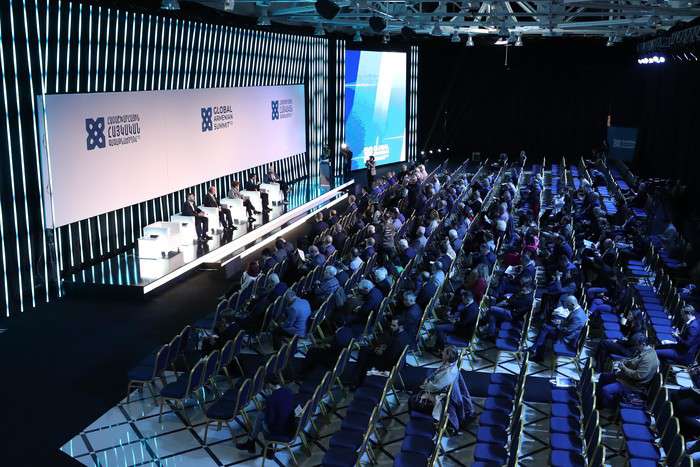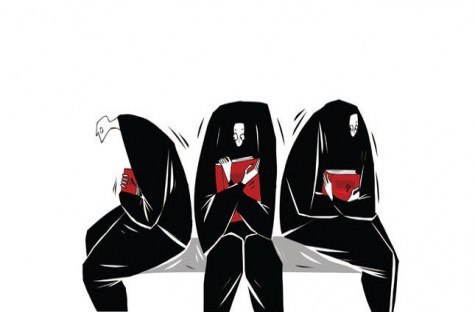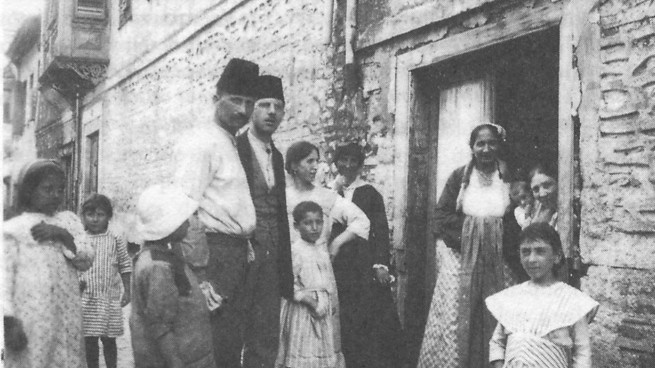The ‘European Neighborhood Policy’ which the European Union started implementing in 2004 with a view to developing closer relations with Eastern Europe, the Caucasus and countries of the Mediterranean, later on was transformed into a separate ‘Eastern Partnership’ program reinforced with political and financial stimulants for the three East European countries of the former Soviet geography (Belarus, Moldova and Ukraine) and the three Caucasian countries (Azerbaijan, Georgia and Armenia).
Rather than adopting a holistic approach to this privileged program designed for these six countries, the European Union has opted to differentiate within itself, deciding to address each on a country by country basis. Thus, justification for a favorable approach towards Armenia has emerged. This situation has been displayed once again with the annual “European Neighborhood Policy Progress Report” publicized on the 20th of March.
A comparative review of Azerbaijan and Armenia in the report provides the occassion for an observation of striking prejudice. The EU Commission has urged the Armenian Government to step up its work to implement and enforce human rights legislation. The report also underlined the need to address shortcomings in Armenia’s recent presidential elections. Notwithstanding, Armenia has been assessed to qualify for developing closer relations with the EU, clearing its way for deepened cooperation. On the other hand, the report does not take into consideration Armenia’s occupation of a neighboring country’s territories and its adamant continuation to do so. Thus, beyond turning a blind eye to the occupation, the European Union appears to tolerate and even lend its support to this situation. Concerning the region of Nagorno-Karabakh which only forms a part of the territories under occupation, the report states the following: The EU urged “Armenia to intensify efforts with Azerbaijan to reach an agreement and ensure unimpeded access to representatives for EU representatives to the area and surrounding regions”.
As regards to Azerbaijan, it faces a strong barrage of criticism and although not openly stated, the door to cooperation at a higher level is shunned. Furthermore, as if to rub salt into Azerbaijan’s bleeding wound, the report calls upon Baku to reach an agreement with Armenia over its separatist territory of Nagorno-Karabakh. As if the country whose territorial integrity is violated and its territories, in addition to Nagorno-Karabakh, seven of its provinces are occupied is not Azerbaijan, as if the country occupying and continuing its occupation despite the UN resolution is not Armenia, the European Union has not seen any harm in publishing a report that depicts the situation as if the sides share equal responsibility, that reflects the mentality that both sides are victims and takes a partial attitude at the expense of clearly violating international law, equity and justice.
The mindset this report reflects once again displays that rather than promoting a continental and global comprehensive vision and opening, the European Union has not been able to escape the shallowness of being a fortress Europe, that it continues to reinforce its ranks on a religious basis and sustains narrow mindedness. The report serves as yet another confirmation that, following the meeting held with the members of the so-called government of Nagorno-Karabakh, the Eastern Partnership Summit, envisaged to be hosted by Lithuania this year in November, cannot be neutral. It also reinforces the perception that fortress Europe has started designing the borders in the north-east that started to be drawn with the shameful Schengen barbed wire erected alongside the Maritsa River.
© 2009-2025 Center for Eurasian Studies (AVİM) All Rights Reserved
THE UNSTEADY SOUTHERN CAUCASUS
 THE EU'S POLICY IS STARTING TO OVERLAP WITH PASHINYAN'S STANCE
THE EU'S POLICY IS STARTING TO OVERLAP WITH PASHINYAN'S STANCE
 YET ANOTHER ARMENIA-DIASPORA SUMMIT: CONSTANT DEJA VU
YET ANOTHER ARMENIA-DIASPORA SUMMIT: CONSTANT DEJA VU
 THE TURKISH-ARMENIAN DISPUTE: WHO HAS SOMETHING TO HIDE?
THE TURKISH-ARMENIAN DISPUTE: WHO HAS SOMETHING TO HIDE?
 TURKS AND JEWS - A HISTORICAL INSIGHT
TURKS AND JEWS - A HISTORICAL INSIGHT




























